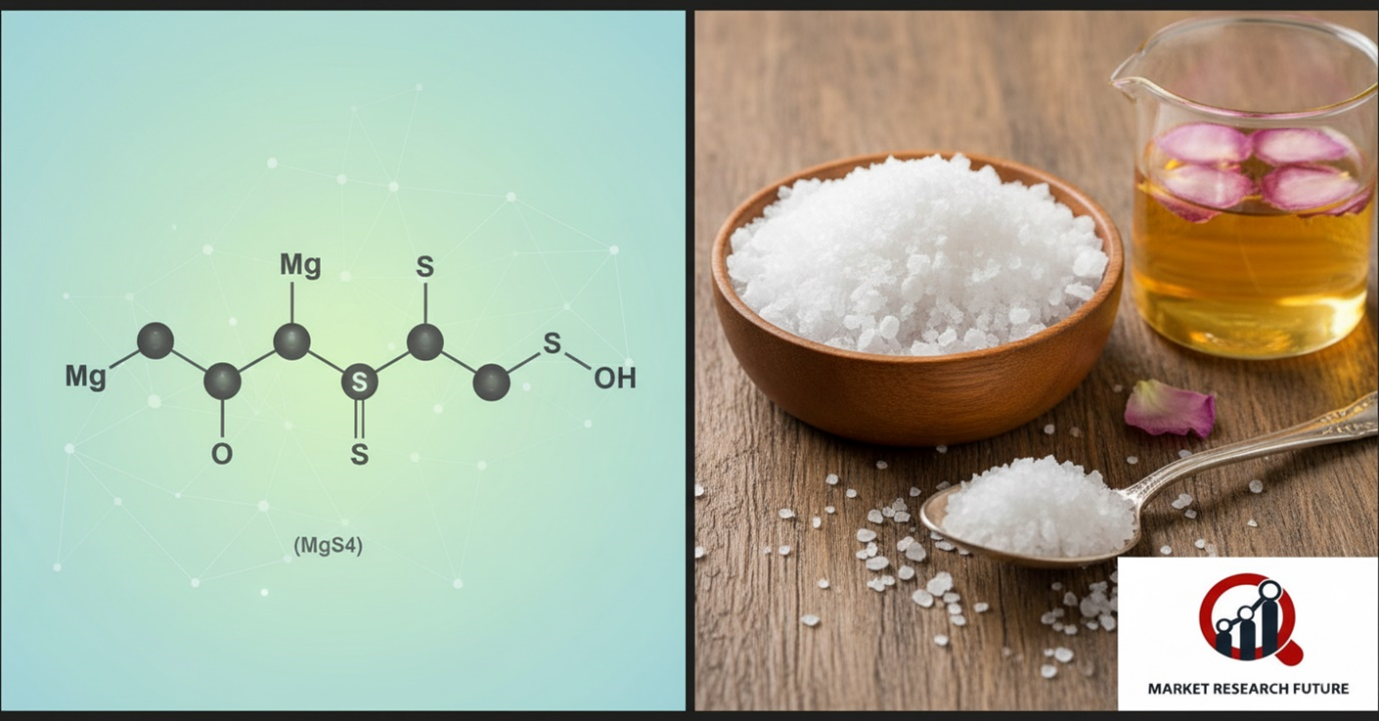Magnesium sulphate, or Epsom Salt – or even bath salt – is a chemical compound of magnesium, sulphur and oxygen

Magnesium Sulfate: The Mineral That Heals in Nature
Epsom salt or bath salt is a common name for magnesium sulphate, which is a naturally occurring compound made up of magnesium, sulphur, and oxygen. It gets its name from the English town of Epsom, where it was found for the first time hundreds of years ago. Epsom salt looks like table salt, but it tastes bitter and is mostly used for its health and therapeutic benefits instead of cooking.
People have used Epsom salt for both relaxation and health reasons for a long time. People often dissolve it in warm baths to relax sore muscles, relieve stress, and make them feel calm. Folklore has long said that taking it by mouth can help with problems like constipation and insomnia, but modern wellness practices are more interested in its external benefits and how to use it topically.
Things that people use Epsom salt for
Many people use Epsom salt all the time because it has so many uses. It helps get rid of dead skin and soothes sunburn when it is mixed with water. Because it has mild antimicrobial properties, it can help with acne and small skin problems like bug bites and poison ivy rashes. Epsom salt is good for more than just personal care; it also helps with gardening. When you spray it on plants, it helps soil that doesn't have enough magnesium and helps plants grow strong.
Pros
Magnesium, an important mineral that helps muscles and nerves work properly, lowers stress, and helps people relax, is what makes Epsom salt so good for you. People think that taking Epsom salt baths on a regular basis can help calm the mind, reduce anxiety, and improve sleep. They might also help with sore muscles and getting better after working out.
Effects on the Side
It is generally safe to use on the outside of the body, but you should be careful when eating it because too much of it can upset your stomach. Epsom salt is still one of nature's most useful and calming wellness essentials when used correctly and bought from trusted sources.

Leave a Comment